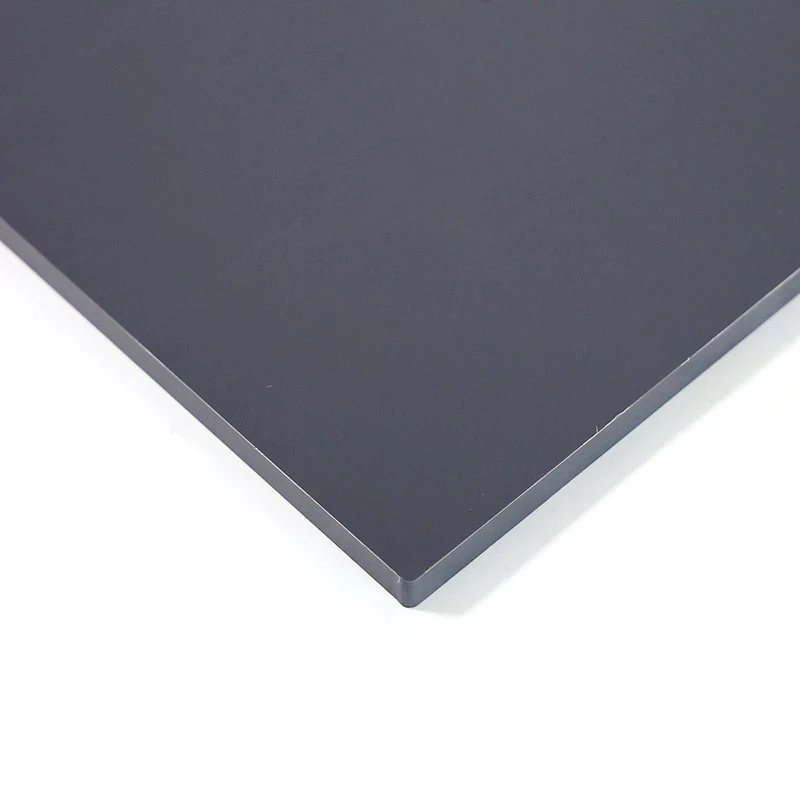ное. . 27, 2024 04:05 Back to list
150mm diameter PVC pipe specifications and applications for various projects
Understanding the Utility of 150mm PVC Pipe
When it comes to plumbing and construction, choosing the right materials is crucial for durability and functionality. One of the most commonly used materials in these industries is polyvinyl chloride (PVC), known for its versatility, strength, and corrosion resistance. Among various specifications, the 150mm PVC pipe stands out as a particularly significant option, especially in commercial and industrial applications. This article explores the features, applications, and advantages of 150mm PVC pipes.
Features of 150mm PVC Pipe
The 150mm PVC pipe has a nominal diameter of 150 millimeters, making it a robust choice for many piping systems. Typically, it comes in a range of wall thicknesses to suit different pressure requirements and applications. This size is particularly advantageous because it strikes a balance between flow capacity and structural integrity.
One of the notable features of PVC is its lightweight nature, making it easier to handle and install compared to alternatives such as metal. Moreover, PVC pipes are available in various pressure ratings, allowing engineers to select the right pipe for specific fluid dynamics and pressure conditions.
Applications
150mm PVC pipes are widely utilized in various applications, including
1. Drainage Systems The large diameter allows for effective transportation of wastewater in municipal and commercial drainage systems. Its smooth interior surface helps in reducing flow resistance, enhancing system efficiency.
2. Sewage Systems These pipes are resistant to corrosion and chemical degradation, making them ideal for sewage disposal systems where exposure to harsh substances is common.
3. Irrigation In agricultural applications, 150mm PVC pipes are often employed in irrigation systems, capable of delivering large volumes of water to crops efficiently.
150mm pvc pipe

4. Industrial Use Many industries utilize PVC pipes for transporting chemicals, slurries, and other fluids due to their chemical resistance and durability.
5. Cable Conduits The 150mm size is also used in the installation of electrical conduits, protecting wires and cables from physical damage.
Advantages of PVC Pipes
One of the primary advantages of 150mm PVC pipes is their resistance to corrosion, which significantly enhances their lifespan. Unlike metal pipes, which can rust over time, PVC remains intact against various environmental factors, thereby reducing maintenance costs and prolonging the service life of the installation.
Another key advantage is that PVC pipes are non-toxic and safe for potable water applications. They do not leach harmful chemicals, making them suitable for drinking water systems when appropriately categorized and installed.
Moreover, the ease of installation of PVC pipes is a considerable benefit. Their lightweight nature reduces labor costs and time associated with transport and installation. Additionally, the pipes can be easily cut to size and joined using solvent cement or mechanical fittings.
Environmental Considerations
While exploring the benefits of 150mm PVC pipes, it’s crucial to address environmental considerations. PVC is a recyclable material, and the industry has made strides in improving the sustainability of PVC production. Using PVC can contribute to lower greenhouse gas emissions compared to materials like metal during manufacturing and installation processes. However, responsible disposal and recycling of PVC at the end of its life are paramount to minimizing environmental impacts.
Conclusion
In conclusion, 150mm PVC pipes play an essential role across various sectors, from drainage and sewage systems to industrial applications. Their lightweight and durable nature, combined with resistance to corrosion, make them a preferred choice for many professionals in the plumbing and construction fields. As industries continue to seek cost-effective and sustainable solutions, the versatility of PVC pipes remains paramount. Whether you are a contractor, an engineer, or a DIY enthusiast, understanding the utility and advantages of 150mm PVC pipes is invaluable in making informed decisions regarding building materials for future projects.
-
High-Quality PPR Pipes and Fittings Durable ERA PPR & PVC PPR Solutions
NewsJul.08,2025
-
Black HDPE Cutting Board - Durable, Non-Porous & Food Safe HDPE Plastic Cutting Board
NewsJul.08,2025
-
High-Quality CPVC Panel Durable HDPE & PVC Panels Supplier
NewsJul.08,2025
-
Double PE Welding Rod Supplier - High Strength, Durable & Versatile Welding Solutions
NewsJul.07,2025
-
High-Quality PVC-O Pipe Supplier Durable 75mm PVC Pipe & Connections Leading PVC Pipe Company
NewsJul.07,2025
-
HDPE Drainage Pipe Supplier – Durable & Corrosion-Resistant Solutions
NewsJul.06,2025

